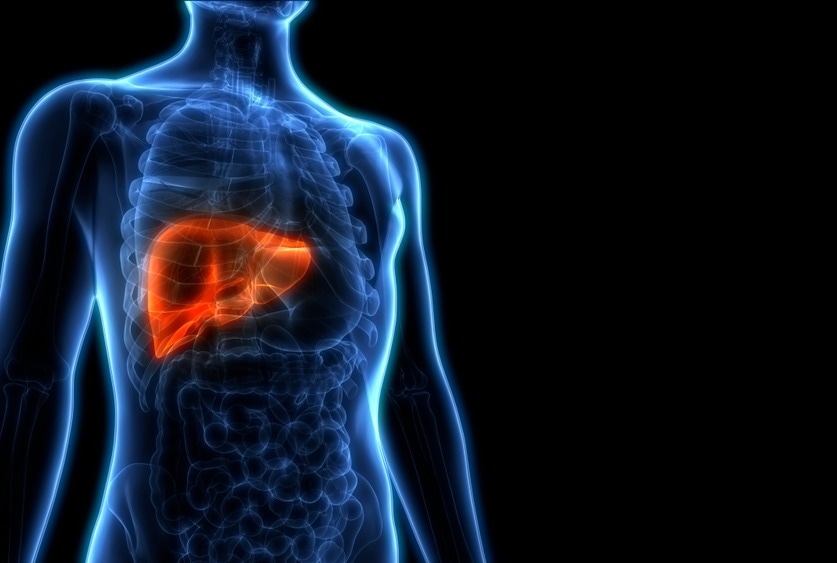The immune system may attack the liver when fat builds up there. The chemical that triggers these responses has been discovered by Weill Cornell Medicine researchers in a recent study, and this information helps to explain the dynamics of liver damage that can accompany type 2 diabetes and obesity.
 Illustration of human liver anatomy. Image Credit: Shutterstock.
Illustration of human liver anatomy. Image Credit: Shutterstock.
In the study published on August 19th, 2022, in Science Immunology, scientists genetically modified mice or fed them a high-fat, high-sugar diet to imitate these human metabolic illnesses. The immune system of the rodent, which mounts defenses specific to threats, was then tested for modifications. This immune response, which includes B and T cells, harms the organs and tissues it is designed to defend when it is misdirected back upon the body.
For the longest time, people have been wondering how T and B cells learn to attack liver cells, which are under increased metabolic stress due to a high fat high sugar diet. We have identified one protein—probably the first of many—that is produced by stressed liver cells and then recognized by both B and T cells as a target.”
Dr Laura Santambrogio, Lead Investigator and Professor, Radiation Oncology, Englander Institute for Precision Medicine at Weill Cornell Medicine
Dr Laura Santambrogio is also a professor of physiology and biophysics and the associate director for precision immunology at the Englander Institute for Precision Medicine at Weill Cornell Medicine.
In persons with certain metabolic disorders, the immune system’s activation exacerbates the damage already present within this organ, she claimed.
The liver stores too much fat when a person has type 2 diabetes or is obese, which can stress cells and cause nonalcoholic steatohepatitis, also known as fatty liver disease. Stress causes inflammation, a generalized immune response that, although it is supposed to protect, can eventually damage tissue. Scientists now have proof that the activity of B and T cells also has a role.
Antibodies are proteins made by B cells that attach to particular parts of invaders to neutralize them. Similar to this, T cells kill infected cells after identifying fragments of a target protein. These cells can occasionally become hostile to the body by identifying “self” proteins, as is the case with autoimmune disorders.
Researchers from Dr Lawrence Stern’s team at the University of Massachusetts Medical School, Dr Lorenzo Galluzzi, assistant professor of cell biology in radiation oncology at Weill Cornell Medicine, and Dr Marcus Goncalves, assistant professor of medicine at Weill Cornell Medicine and an endocrinologist at NewYork-Presbyterian/Weill Cornell Medical Center, collaborated with Dr Santambrogio and her team.
They discovered a protein called PDIA3 which activates both B and T cells after examining the behavior of another type of immune cell known as dendritic cells. In response to stress, cells produce more PDIA3, which migrates to their surfaces and facilitates immune system attack.
Although these studies were conducted on mice, a comparable dynamic seems to be present in people. PDIA3 antibodies were identified in excess in blood samples taken from persons with type 2 diabetes as well as from people with autoimmune diseases that damage the liver and its bile ducts.
However, unlike autoimmune disorders, this liver ailment can be reversed by altering one’s diet and losing weight. According to Dr Santambrogio, a link between diet and a decline in fatty liver disease is already well-established.
“We have added a new piece to the puzzle, by showing how the immune system starts to attack the liver,” says Dr Santambrogio.
Source:
Journal reference:
Clement, C. C. et al. (2022) PDIA3 epitope-driven immune autoreactivity contributes to hepatic damage in type 2 diabetes. Science Immunology. doi.org/10.1126/sciimmunol.abl3795.